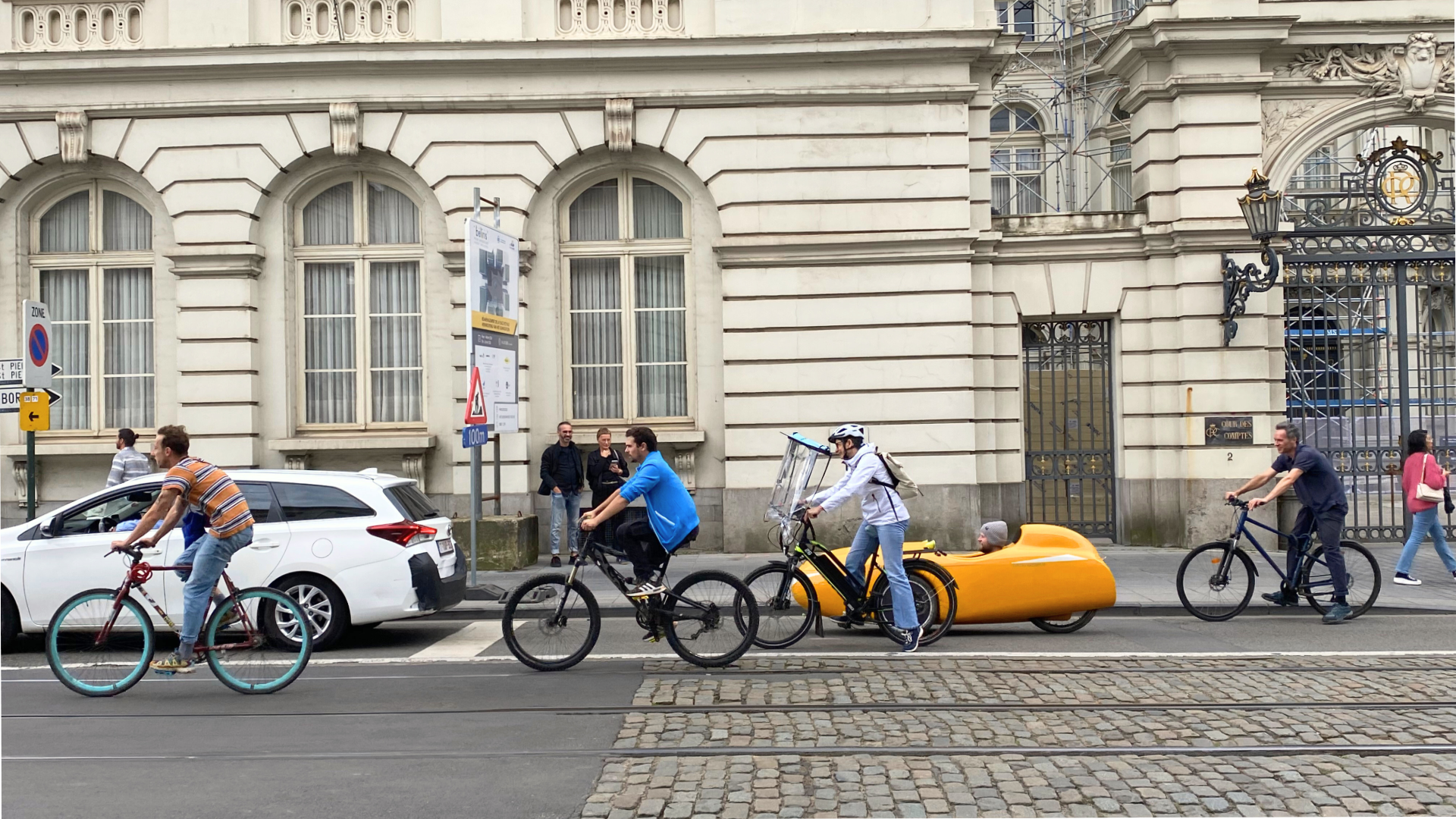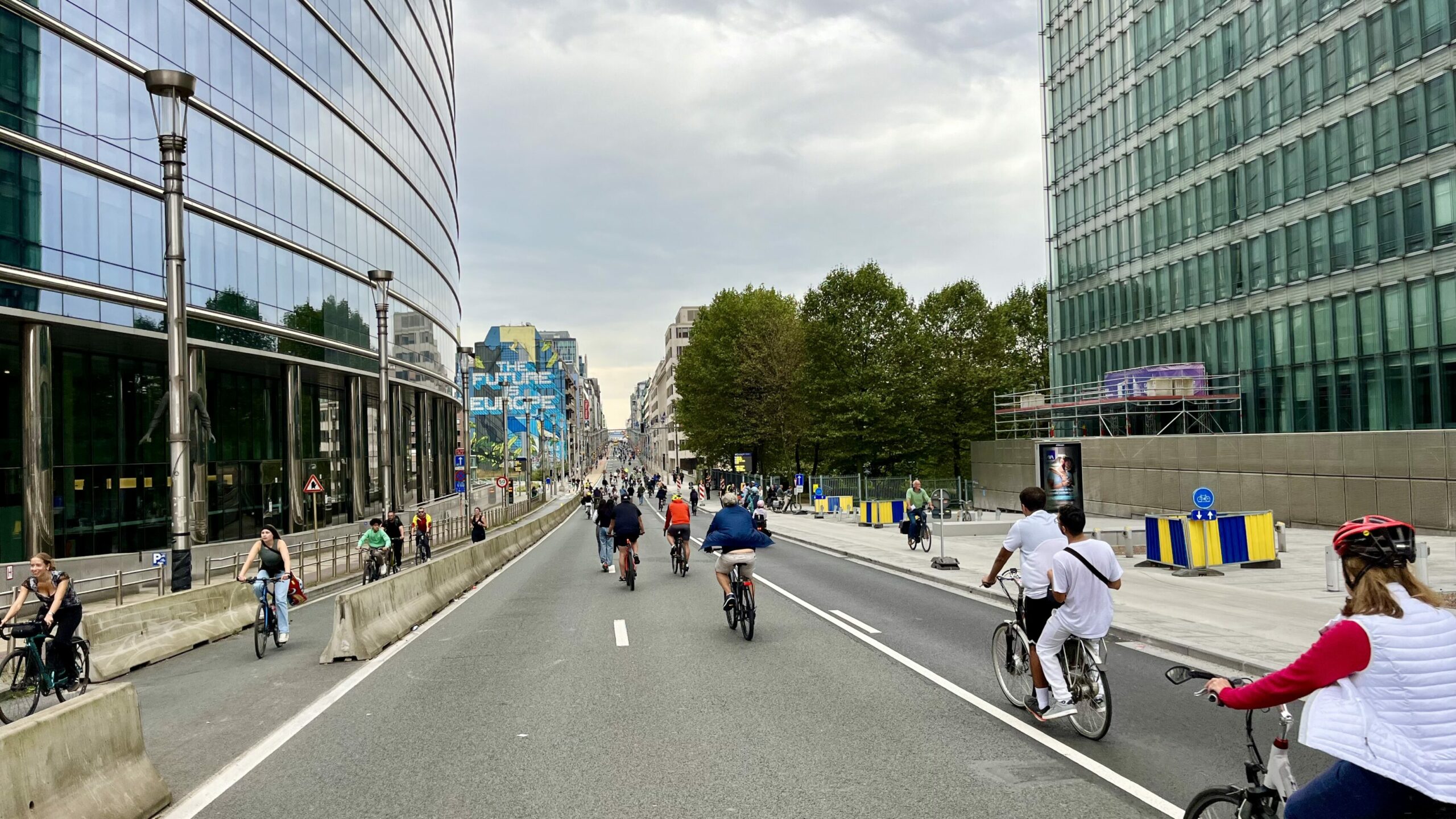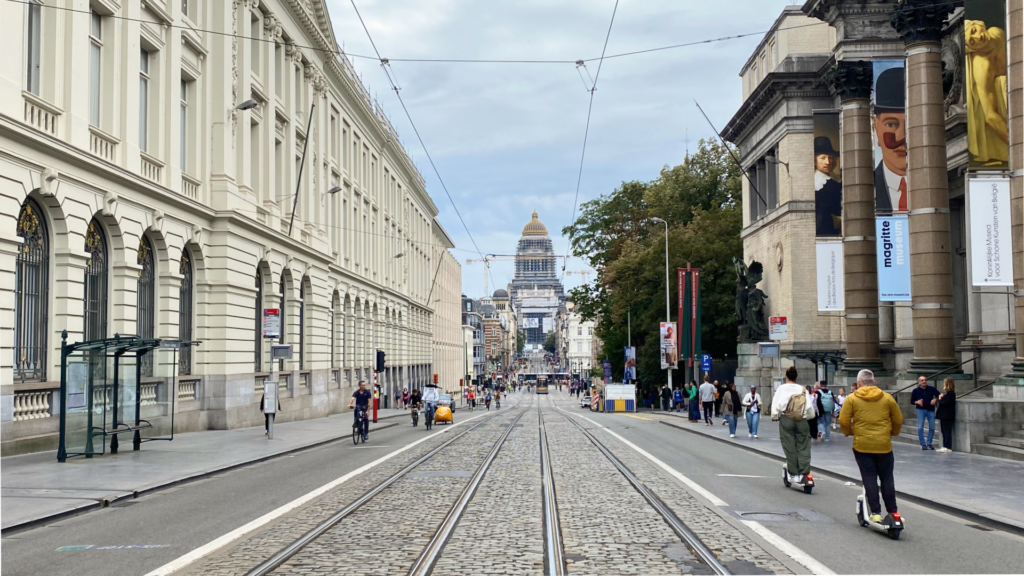For many in Brussels, Sunday 22 September was the best day of the year. Streets were rid of cars, and pedestrians, cyclists, mono-wheelers, rollerbladers and other road users took over. Aside from the fun activities, this annual tradition once again saw air quality improve significantly.
Belgium's capital turned into the largest car-free zone again on Sunday. Thousands of residents ventured out onto the streets to cycle, walk, meet friends, hold neighbourhood barbecues and browse the iconic brocantes (jumble sales), while those from outside the region came to (re)discover a less chaotic and car-dominated Brussels.
"Car-free Sunday is the most beautiful day of the year; it's a Brussels tradition that people really look forward to," outgoing Mobility Minister Elke Van den Brandt (Groen) told The Brussels Times. "You can sense the excitement early in the morning and you see plenty of possibilities once our public space is free to use for all active road users."

Credit: The Brussels Times / Ugo Realfonzo
Van den Brandt noted that Car-Free Sunday is also increasingly respected by road users, adding that, like most editions, there were no major incidents. The Brussels Fire Brigade recorded 206 medical interventions during the period when the region was closed off to cars (from 09:30 until 19:00), of which 43 involved someone falling or a minor accident.
Reduction in pollution
In addition to changing the face of the capital, those out and about may also have noticed a change in the air quality in Brussels, reflected in figures from Brussels Environment. "Overall, Car-Free Sunday resulted in an improvement in air quality, with a significant drop in concentrations of several pollutants," the agency noted.
Compared with an average Sunday, levels of nitrogen monoxide (NO) from car emissions decreased by between 42% and 100% in urban environments with high or very high levels of road traffic. This drop was as great as between 62% and 100% compared to an average weekday.
Meanwhile, levels of nitrogen dioxide (NO2) – one of the pollutants with the highest documented impact on human health, also caused by fuel used in cars – dropped by between 47% and 67% compared to an average Sunday, and between 62% and 79% when comparing the levels to those recorded on an average weekday.

A car-free Rue de la Loi in the European Quarter. Credit: Brussels Environment
The impact was clearest on the capital's busiest roads. At the Arts-Loi air quality measuring station, NO and NO2 concentrations were down by 88% and 62%, respectively, compared with an average Sunday. Compared with an average weekday, the fall was even more marked: concentrations of NO and NO2 were 94% and 74% lower, respectively.
In terms of noise pollution, a strong decrease in background noise levels was measured at the various monitoring stations. "They were very marked (from 17 to 24 dB(A)) for the stations located near the E40 motorway at Woluwe-Saint-Lambert and the E411 motorway at Auderghem," Brussels Environment said. "There is talk of a 99% reduction."
More car-free days on the cards?
The agency believes that Car-Free Sunday is an opportunity to highlight the scale of the pollution emitted by road traffic and the consequences of the absence (or near-absence) of motorised vehicles. "The challenge is immense. Air pollution causes almost 5,000 premature deaths a year in Belgium."
The impressive results make many question why Car-Free Sunday is not a more regular occurrence. Van den Brandt herself has highlighted this repeatedly: "There is one big downside to Car-free Sunday: it only happens once a year. So much joy and health and openness should be spread evenly throughout the year," she said.
"Once a year is like Christmas: the exception confirms the rule. Once a month is a habit – the new normal. Car-Free Sunday is a glimpse of what Brussels will look like in a few years from now."
Pre-election, she pushed for the event to take place every month, but the idea was deemed "too much of a burden on the budget". Among Dutch-speaking parties in Brussels, Van den Brandt's environmental party Groen scored best with 22.28%. She believes this is a mandate to push for a greener mobility policy including the Low Emission Zones (LEZ) and Good Move.
However, in the formation talks, she has faced pushback on such policies. With the LEZ becoming a make-or-break issue for the negotiations and even leading to Van den Brandt resigning as lead negotiator on the Dutch-speaking side, it is unlikely the event will be taking place several times a year any time soon.

